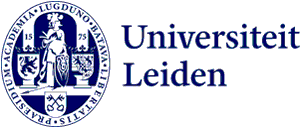14 search results for “memory studies” in the Public website
-
Memory and Identity
Research conducted in this group aims at furthering our understanding of how communities and individuals deal with social change, conflict and trauma through remembrance and commemoration as well as forgetting in the arts.
-
Memory in Early Modern Europe 1500 - 1800
For early modern Europeans, the past was a measure of most things, good and bad. For that reason it was also hotly contested, manipulated, and far too important to be left to historians alone.
-
 Esther Zwinkels
Esther ZwinkelsFaculty of Humanities
-
to Silence: Silence as Empowerment in contemporary Dutch decolonial memory activism
In Dutch society’s discussions about remembering the colonial past, voice is often used as a metaphor for empowerment ('we must raise our voices'), whereas silence is often used as voice’s negative counterpart, signifying a loss or lack of power ('we will no longer be silenced'). Yet, silence is expressive:…
-
Advancing Authoritarian Memory: Global China’s New Heroes
Rising geopolitical tensions are causing states and national elites to innovate their use of the past for present-day political ends. This is certainly true for the People’s Republic of China, which prepares to celebrate its 75th anniversary in 2024 amid mounting superpower rivalry, ideological tensions…
-
 Ali Shobeiri
Ali ShobeiriFaculty of Humanities
-
 Carina van den Hoven
Carina van den HovenFaculty of Humanities
-
 Bareez Majid
Bareez MajidFaculty of Humanities
-
 Sara Polak
Sara PolakFaculty of Humanities
-
 Judith Naeff
Judith NaeffFaculty of Humanities
-
 Judith Pollmann
Judith PollmannFaculty of Humanities
-
Fulbright scholarship takes Sara Polak to Yale
Sara Polak, PhD researcher and lecturer at LUCAS, has won a Fulbright scholarship to work on her research on Franklin D. Roosevelt at Yale University from September 2014 till February 2015.
-
Veiled references to the Armenian genocide
No criticism is allowed in Turkey of the mass murder of Armenians that took place a century ago. PhD candidate Alaettin Carikci examined how contemporary artists, authors, film directors and museums have nonetheless found indirect ways of expressing their criticism.
-
The Gulag Legacy - Memory of Stalinism in Today's Russia
Lecture
